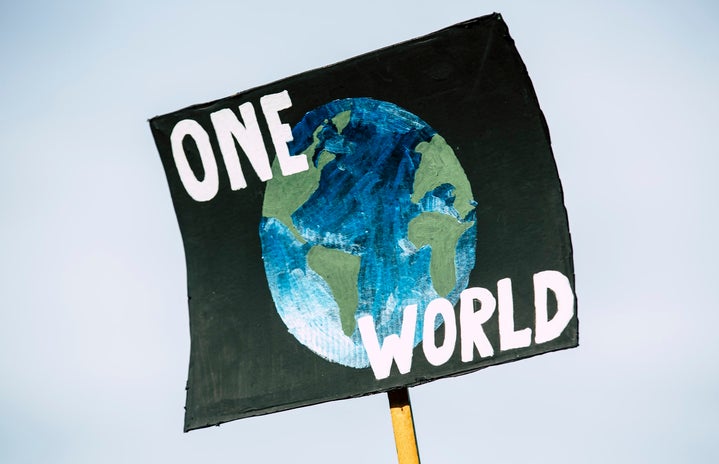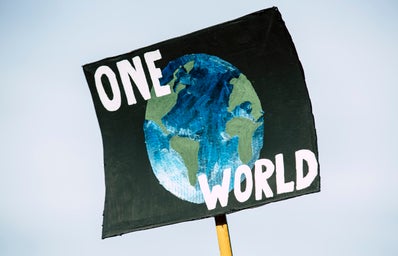COP stands for Conference of the Parties and is attended by the United Nations framework convention on climate change (UNFCCC created in 1994) involving 43 parties including the European Union. For nearly 30 years almost every country in the world has gathered for these climate summits. As the issue of climate change has become more prominent in the last 10 years more focus has been put upon COP because everyone is looking for answers.
This year is the 26th annual COP and is being held in Glasgow. Experts believe it to have the utmost urgency of all the COPs as after this one there is no saving climate change. The main issues that were discussed at length by the COP26 President (Alok Sharma who is the Conservative MP for Reading West) throughout the 2 weeks were:
- Keeping the climate rise beneath 1.5C;
- The reinvention of the fossil fuel industry, especially coal;
- The financial commitments to developing nations who need the help the most.
So, here’s what happened to help achieve this goal.
Week One
Firstly, the issue of methane was discussed. Being a more effective greenhouse gas than carbon dioxide, it contributes to around 50% of current global warming issues and needed to be addressed. At COP26 the number of countries that pledged to cut emissions of methane by 30% in time for 2030 rose to 105. Cutting back on methane emissions will buy the earth more time however it isn’t as important as the reduction of Co2.
On a negative note, the countries that have the worse methane emissions are yet to pledge this (China, Russia etc). To combat climate change, a huge focus needs to be put on Western contributions as they have huge power.
Secondly, there’s the issue of deforestation. World leaders promised to end deforestation by 2030. This pledge includes countries such as Brazil who are responsible for the largest section of the Amazon Rainforest deforestation.
Another big issue on the agenda was hydrogen fuel. It is currently having a significant role in reducing emissions. It is currently being used for cooking and transporting fuel etc. Many assume that by 2050 the hydrogen economical market will become as big as oil and gas; we are looking at it for the last hope towards helping the earth.
Other issues such as carbon emissions, and what world leaders such as UK Prime Minister, Boris Johnson, state what they are doing to tackle climate change were on the programme.
Week Two
The week two agenda was more about creating solutions to the problems that had been discussed in week one, fossil fuel phase-out and economic help etc.
The UK has announced £290 million in funding to help the most vulnerable countries deal with the first-hand impact of climate change. The government is also placing an urgent call upon other major countries to step up their contributions to create a climate-resilient future for all.
The UK also pledged to become one of the first countries in the world to commit to getting rid of emissions from HGVs (this is to be done by 2040). To do this they have introduced a new charge point designed for zero-emission vehicles to cope with the major influx in charging points.
Overall, the Glasgow climate pact was created aiming to keep global warming at 1.5 degrees Celsius and to protect future generations. The first agreement in the pact involves coal.
65 countries committed to phasing out coal. All major coal countries such as India have committed to ending international coal finance by the end of 2021.
Secondly, leaders talked about cars and their environmental impact. More than 30 countries and the world’s largest car manufacturers said that all new car sales were to be producing zero emissions by 2040.
Thirdly, they discussed cash. More funding was produced internationally which brought us closer to the 100-billion-dollar goal that was set at the Paris climate agreement.
Finally, over 130 leaders pledged to end deforestation by 2030.
What’s next?
It is clear that great effort was undertaken at COP to address the world’s most drilling climate needs- but was it enough? We need critical action to be made to see a change, and if the most powerful countries don’t realise this and act now, it will be too late. A new sustainable future needs to be created for current and more importantly future generations. We will see in 2030 if the targets discussed have been met.
So do your bit for climate change, use a reusable water bottle, eat more meat-free meals, and turn the lights off when you leave home. Climate change isn’t reversible, but further prevention is necessary. Let’s have some hope.
Words by: Hayley Seagrave
Edited by: Anna Duffell


